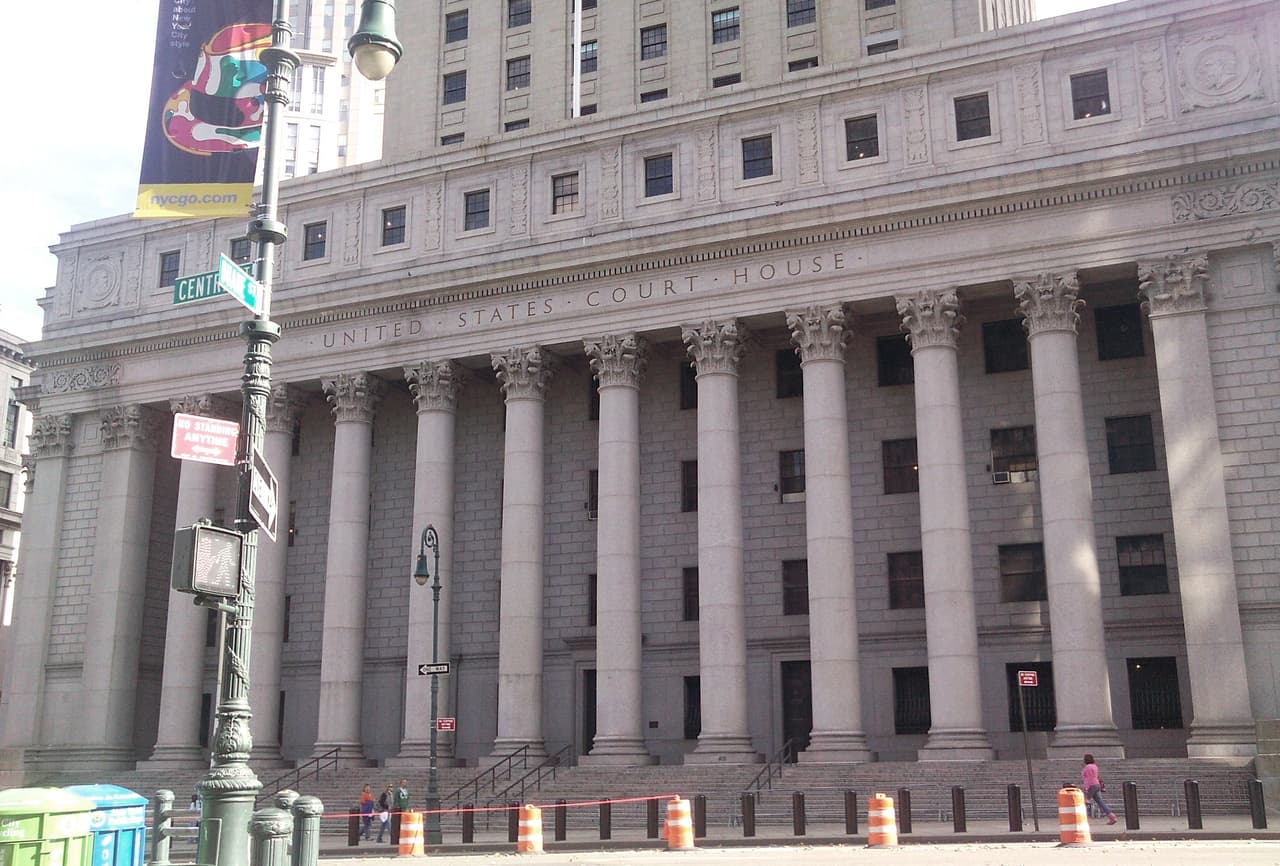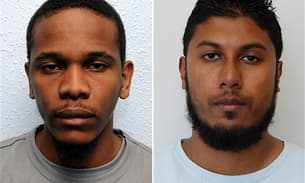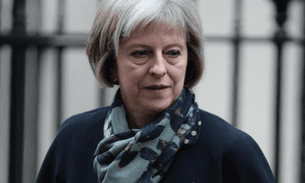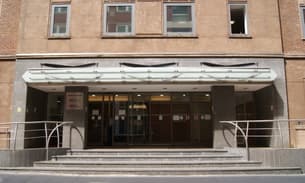
Man stripped of British citizenship pleads not guilty to al Qaeda terror charges in New York
Southern District Court of New York via Wikimedia
A former British citizen, Minh Quang Pham, appeared today before a US court on five separate terrorism-related charges.
Pham, 32, was extradited from Britain last week to stand trial in the US. He has pleaded not guilty to all charges which include working for Al Qaeda in the Arabian Peninsula as a propagandist, receiving terrorist training, and possessing and using a machine gun “in furtherance of crimes of violence”.
Pham allegedly used his graphic design skills to help produce Inspire, AQAP’s English language publication, after “surreptitiously” travelling to Yemen in 2010. According to the indictment filings Pham had told his wife, a British national, he was travelling to Ireland.
If convicted he faces a minimum sentence of 40 years.

Pham formerly lived in southeast London and worked as a web designer. He gained his British citizenship when he was 12 after his family, who are originally from Vietnam, moved to the UK. The UK government claims that he converted to Islam at the age of 21 and later became involved in Islamic extremism.
In December 2011 the home secretary, Theresa May, stripped him of his citizenship and he was taken into custody the same day. He was then re-arrested and jailed six months later following a US extradition order.
In New York Assistant Attorney General for National Security John P. Carlin thanked the British authorities for their “cooperation in the investigation” which led to Pham’s arrest in 2012 and eventual extradition.
Source
Prosecutors say that in Yemen Pham met Ahmed Abdulkadir Warsame, who is now a cooperating witness for the United States. According to a UK High Court judgment, which rejected Pham’s extradition challenge, the bulk of the allegations against Pham come from Warsame’s evidence.
Mr Hugh Southey QC, Pham’s barrister at the High Court, argued there was a real risk that Warsame’s evidence was “obtained through torture or inhumane or degrading treatment”, while he was held “incommunicado” on board a US assault ship.
Referred to as “Floating Gitmo”, it was in the brig of the USS Boxer that Warsame was interrogated for more than two months for intelligence purposes, before being read his rights and interviewed by the FBI. He provided information on a number of individuals, including the US citizen and senior AQAP member Anwar al Awlaki.
Prosecutors claim that Pham cooperated with two now-dead American members of AQAP. The men were not named by prosecutors but according to the High Court judgment they are Anwar al Awlaki, the radical cleric, and Inspire’s former editor, Samir Khan.
Both men were American citizens and were killed by the same US drone strike in Yemen in September 2011.
British citizenship
Born in Vietnam, Pham’s family left when he was one month old and spent seven years living in Hong Kong, before travelling to the UK in 1989 and seeking asylum. He was granted British citizenship at the age of 12 in 1995.
Home secretary Theresa May served Pham with a notice depriving him of his British citizenship in December 2011.
Pham’s case is unusual because the deprivation of citizenship order was made while he was in the UK. In almost all other known cases identified by the Bureau, the order has been made while the subject was out of the country, effectively preventing them from returning.
Pham won his original appeal against the loss of his citizenship in the Special Immigration Appeals Commission. He argued that the citizenship stripping order left him unlawfully stateless.
May then appealed this decision at the Court of Appeal, arguing that though the Vietnamese government did not recognise Pham as a national, under Vietnamese nationality laws he would not have lost the Vietnamese citizenship he was born with when he became a naturalised British citizen. The Court allowed May’s appeal and the case moved up to the Supreme Court last year.
Pham’s case is the second deprivation of citizenship appeal to be heard before the Supreme Court, Britain’s uppermost court. A judgment is expected by the end of the month.
Extradition
Pham is the third individual along with Mahdi Hashi, 25, and Abu Hamza al Masri, 56, known to the Bureau to have lost his British citizenship prior to being charged by the US with terrorist offences.
Hashi lost his appeal in January this year against the loss of his British citizenship. He has been in solitary confinement for more than two years, ever since he was secretly rendered to New York from Djibouti in 2012. Hashi alleges he was ‘illegally interrogated’ by US officials while he was held in Djibouti, just months after being stripped of his British citizenship.
Abu Hamza was deprived of his British citizenship in 2003 but successfully appealed in 2010. It was the first attempt in 30 years to revoke an individual’s British citizenship, and his successful appeal in 2010 is one of only two cases known to the Bureau where a person’s citizenship has been restored. That didn’t prevent him from being extradited to the US in 2012. He was found guilty of supporting terrorism and sentenced to life imprisonment by a New York court in January this year.
Follow Victoria Parsons on Twitter. Read the Citizenship Revoked investigation here and sign up for email updates on deprivation of citizenship here.




